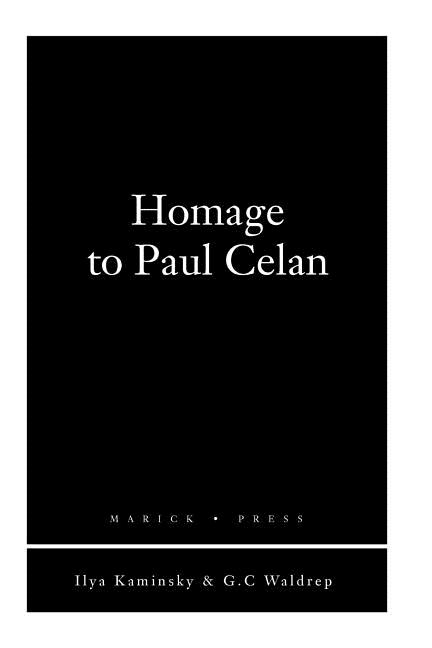Ilya Kaminsky was born in Odessa, former Soviet Union in 1977, and arrived in the United States in 1993, when his family was granted asylum by the American government. He is the author of Dancing In Odessa (Tupelo Press, 2004), which won the American Academy of Arts and Letters' Metcalf Award, the Dorset Prize, and the Ruth Lilly Fellowship given annually by Poetry magazine. In 2009, poems from his manuscript, Deaf Republic, were awarded Poetry magazine's Levinson Prize. Kaminsky’s honors also include a Lannan Foundation Literary Fellowship, a 2005 Whiting Award in Poetry, and a 2018 Guggenheim Fellowship. Kaminsky has translated several books of poetry, including Dark Elderberry Branch: Poems of Marina Tsvetaeva, on which he collaborated with the poet Jean Valentine. His poems have been translated into numerous languages and his books have been published in many countries, including Turkey, Holland, Russia, France, Mexico, Mecedonia, Romania, Spain, and China, where his poetry was awarded the Yinchuan International Poetry Prize. Kaminsky teaches English and Comparative Literature at San Diego State University.

-
Dancing in OdessaPoemsFrom"My Mother’s Tango"
I see her windows open in the rain, laundry in the windows—
she rides a wild pony for my birthday,
a white pony on the seventh floor.
“And where will we keep it?” “On the balcony!”
the pony neighing on the balcony for nine weeks.
At the center of my life: my mother dances,
yes here, as in childhood, my mother
asks to describe the stages of my happiness—
she speaks of soups, she is of their telling:
between the regiments of saucers and towels,
she moves so fast—she is motionless,
opening and closing doors.
But what was happiness? A pony on the balcony!
My mother's past, a cloak she wore on her shoulder.
I drew an axis through the afternoon
to see her, sixty, courting a foreign language—
young, not young—my mother
gallops a pony on the seventh floor.
She becomes a stranger and acts herself, opens
what is shut, shuts what is open.
 Dancing in Odessa : Poems
Dancing in Odessa : Poems- Print Books
- Find your local bookstore (via IndieBound)
- Powell's
- Barnes & Noble
- Alibris
- Abe Books
- E-Books
- Kobo
- Barnes & Noble
"Like Joseph Brodsky before him, Kaminsky is a terrifyingly good poet, another poet from the former U.S.S.R. who, having adopted English, has come to put us native speakers to shame . . . It seemed to take about five minutes to read this book, and when I began again, I reached the end before I was ready. That's how compulsive, how propulsive it is to read. It wraps you in a world created by a new and wonderful poet." —The Philadelphia Inquirer [on Dancing in Odessa]
"This is the real stuff. He writes like a child 100 years old, not for bravura display but for the sake of those souls whose being he feels, and they are many. This is poetry I am grateful to read. The beauty of this book radiates in all places." —The San Francisco Reader [on Dancing in Odessa]
"With his magical style in English, poems in Dancing In Odessa seem like a literary counterpart to Chagall in which laws of gravity have been suspended and colors reassigned, but only to make everyday reality that much more indelible. His imagination is so transformative that we respond with equal measures of grief and exhilaration." —American Academy of Arts and Letters Citation for Metcalf Award
Selected Works

- Print Books
- Find your local bookstore (via IndieBound)
- Powell's
- Barnes & Noble
- E-Books
- Kobo
- Google Books
- Barnes & Noble


- Print Books
- Find your local bookstore (via IndieBound)
- Powell's
- Barnes & Noble
- Alibris
- Abe Books
- E-Books
- Kobo
- Barnes & Noble

- Print Books
- Powell's
- Barnes & Noble
- Alibris
- Abe Books
- E-Books
- Kobo
- Barnes & Noble